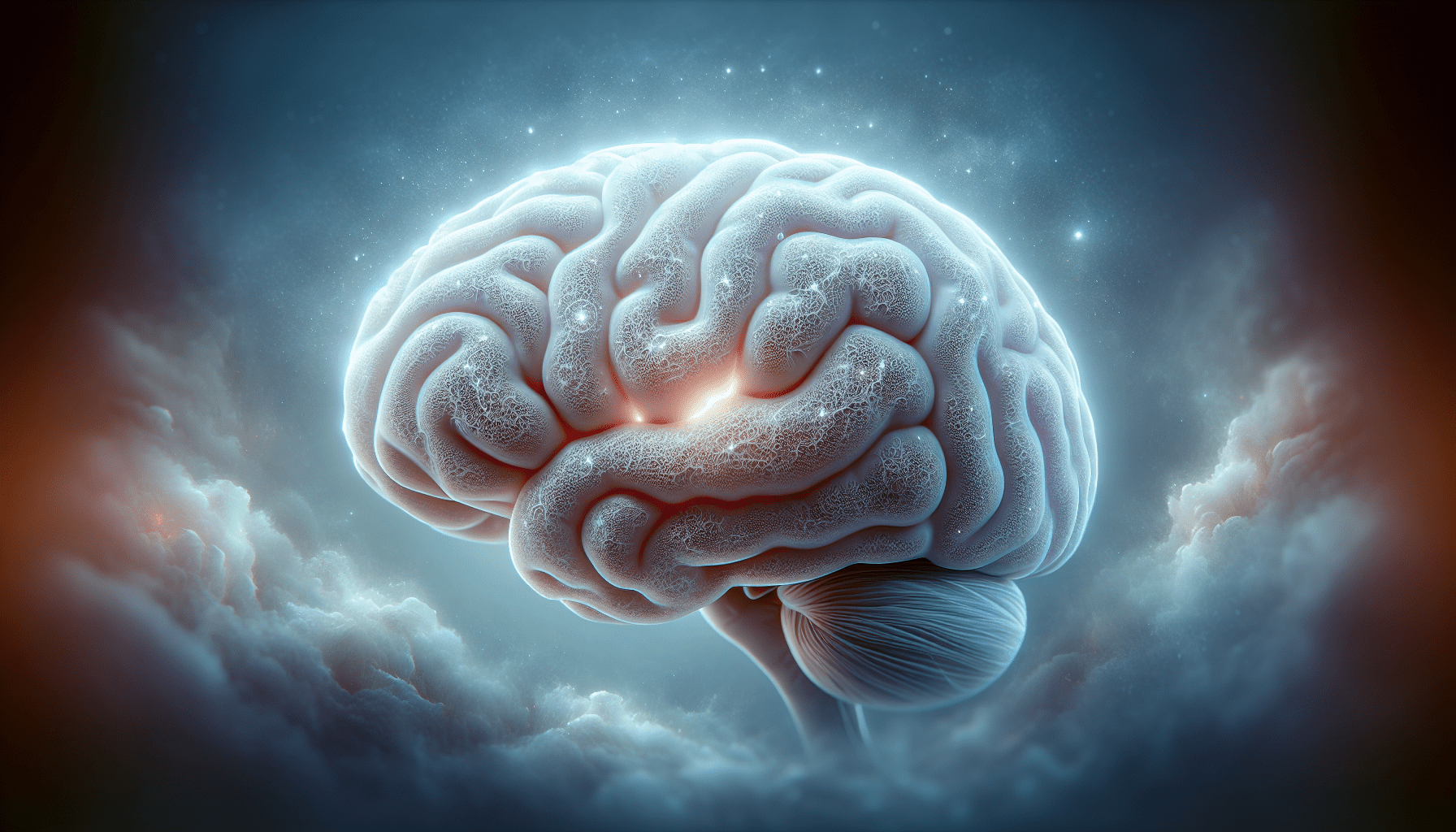Have you ever found yourself pausing, trying to remember where you placed your keys, or perhaps struggling to recall the name of an acquaintance? These moments of forgetfulness might leave you pondering if there's a deeper issue at play. Is this mild cognitive impairment (MCI), or just a normal part of life? Let's walk through a journey of understanding what these terms mean and how they relate to each other.
Understanding Forgetfulness
Forgetfulness is something that everyone experiences at some point in their lives. You might forget where you parked your car, or why you walked into a room. But, what exactly is forgetfulness?
What Causes Forgetfulness?
Forgetfulness can be caused by a variety of factors. It might be the result of stress, fatigue, or even just having too much on your plate. Additionally, lack of sleep, certain medications, or even dehydration can contribute to these occasional lapses in memory. In most cases, these episodes are benign and a normal part of cognitive functioning.
Is Forgetfulness Normal?
Forgetfulness is often considered a normal phenomenon, especially as you age. However, it's important to remember that while it's common, not all forgetfulness should be dismissed without consideration. Most everyday forgetfulness is harmless and involves minor annoyances rather than significant concerns for long-term health.
Delving into Mild Cognitive Impairment
Mild cognitive impairment is a different story. It occupies a sort of middle ground between the forgetfulness in normal aging and the significant memory problems that characterize dementia. But how can you tell the difference?
What is Mild Cognitive Impairment?
Mild Cognitive Impairment (MCI) is a condition that falls between normal age-related cognitive decline and more serious conditions like dementia. Individuals with MCI experience noticeable declines in their cognitive abilities like memory, language, or judgment, but these changes aren't severe enough to significantly interfere with daily life.
Symptoms of MCI
The symptoms of MCI may be subtle, often manifesting as forgetfulness that occurs more frequently or more persistently than would be expected given a person’s age. Some of the key symptoms include:
- Memory loss concerning things recently observed or learned.
- Regularly misplacing items and sometimes placing them in unusual spots.
- Difficulty finding words and frequent repetition in conversations.
- Problems with planning, organization, and staying focused on tasks.
Diagnosing MCI
A diagnosis of MCI is usually made based on medical history, interviews about symptoms, cognitive tests, and sometimes brain imaging. It can be quite nuanced since MCI doesn't have set biological markers like some other conditions. As such, ongoing monitoring by healthcare professionals is often required.

Differentiating Between Forgetfulness and MCI
While both forgetfulness and MCI involve lapses in memory, the degree and impact on daily life are what set them apart.
Magnitude and Frequency
Forgetfulness tends to be sporadic and doesn't generally impact your ability to perform daily tasks. On the other hand, MCI involves more consistent or pronounced memory challenges that may become noticeable to yourself and others in your routine activities.
Daily Life Interference
A key distinction between the two lies in how much the cognitive difficulties interfere with daily life. Forgetfulness generally doesn’t impede daily functioning, whereas MCI may introduce challenges, although they are not yet as severe as those seen in dementia.
Table: Forgetfulness vs. MCI
| Aspect | Forgetfulness | Mild Cognitive Impairment |
|---|---|---|
| Frequency | Sporadic | Consistent |
| Impact on Daily Life | Minimal | Noticeable but not significantly intrusive |
| Evolution | Stable or occasional increase with stress | May progress to dementia |
| Requirement for Monitoring | Usually self-managed | Needs professional monitoring |
What Causes Mild Cognitive Impairment?
While forgetfulness can have many benign causes, MCI is often a different matter. The causes of MCI can sometimes include:
Neurological Factors
Changes in the brain, such as the development of plaques or tangles often seen in Alzheimer's, might contribute to MCI. These changes typically mean the brain isn’t working as efficiently or reliably as it once did.
Health Conditions
Certain conditions such as cardiovascular disease, diabetes, and sleep apnea can increase the risk of developing MCI. Managing these conditions is crucial for potentially preventing or delaying the onset of MCI.
Lifestyle and Diet
An unhealthy lifestyle may enhance the risk of MCI. Diets rich in antioxidants, regular exercise, mental activity, and social engagement can potentially play protective roles against cognitive decline.

Progression and Risks Associated with MCI
MCI stands as its own cognitive stage, but what does the future hold for someone with this condition?
Potential Progression to Dementia
Research indicates that individuals with MCI have a higher risk of developing dementia. Approximately 10-15% of people with MCI progress to dementia each year, which underscores the importance of early detection and vigilant monitoring.
Reversion to Normal Cognition
Interestingly, not everyone with MCI will develop dementia. Some people experience improvements or revert back to a more typical level of cognitive functioning, making ongoing assessment even more crucial.
Caring for Someone with MCI
If someone you care about is experiencing MCI, tailoring support can be beneficial in managing symptoms and preserving quality of life.
Encouraging Healthy Habits
One of the best ways to assist is by promoting the adoption of healthy lifestyle habits. Encourage regular physical exercise, a balanced diet rich in fruits, vegetables, and omega-3 fatty acids, and cognitive engagement through puzzles or learning new skills.
Creating a Supportive Environment
Help structure their environment in ways that aid memory, such as using calendars, lists, and reminders. Establishing a routine can alleviate confusion and anxiety that may accompany MCI.
Offering Emotional Support
Emotional and social support is equally crucial. Engage in regular conversations and encourage participation in social activities to bolster both mood and cognitive health.
Seeking Professional Help
When in doubt, professional intervention can be vital in managing MCI effectively.
Consulting Healthcare Professionals
Regular consultations with healthcare providers can provide valuable information, support, and monitoring. They can help determine if MCI is present, manage underlying conditions, and possibly delay the progression to dementia.
Exploring Treatment Options
While there’s no cure for MCI, certain treatments and interventions might mitigate symptoms. Cognitive therapy, medications, and lifestyle adjustments can all play roles in managing symptoms.
Strategies for Prevention
Though MCI presents challenges, there are strategies you can adopt to potentially stave off cognitive decline.
Maintaining Mental Sharpness
Keep your mind active with reading, puzzles, or learning a new language or skill. Mental activity stimulates brain function and may help stave off cognitive decline.
Physical Activity and Health
Regular exercise is known to enhance brain health by boosting blood flow and encouraging the growth of new neurons. Even a thirty-minute walk several times a week can have significant benefits.
Balancing Diet and Nutrition
Embrace a diet that nourishes the brain, such as the Mediterranean diet, which is rich in whole grains, nuts, and healthy fats. Proper nutrition supports overall well-being and cognitive function.

Conclusion
Remembering if you've left the stove on or forgotten a friend's birthday can be worrisome, but not always a cause for alarm. Mild cognitive impairment presents a greater challenge than ordinary forgetfulness, yet remains a separate entity from dementia. Differentiating between them, understanding the causes and risks, and adopting supportive and preventative measures can all contribute to a holistic approach to mental health. Embrace these strategies to empower yourself and others in fostering cognitive vitality.


